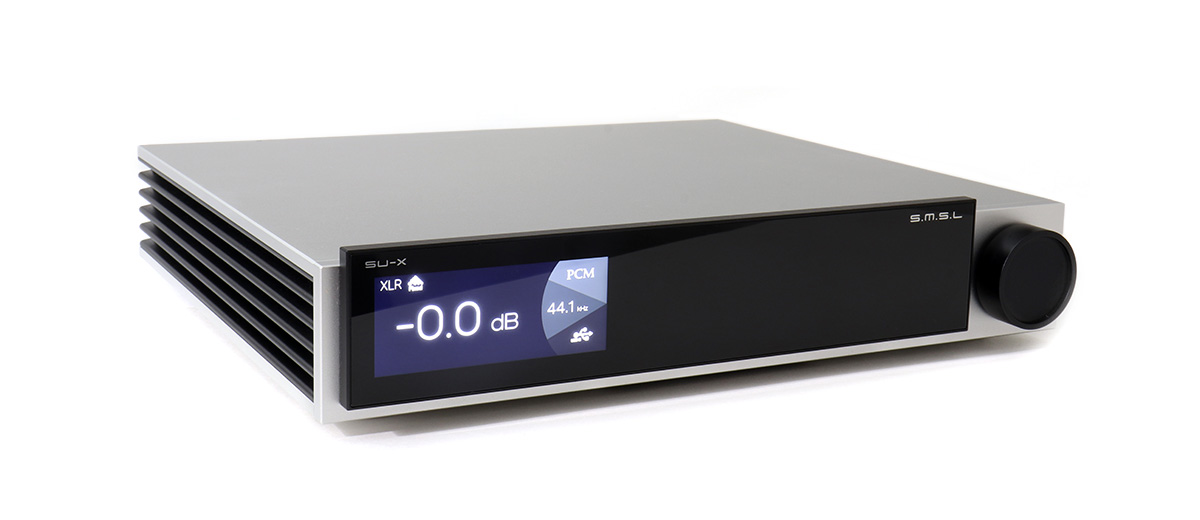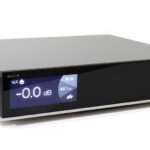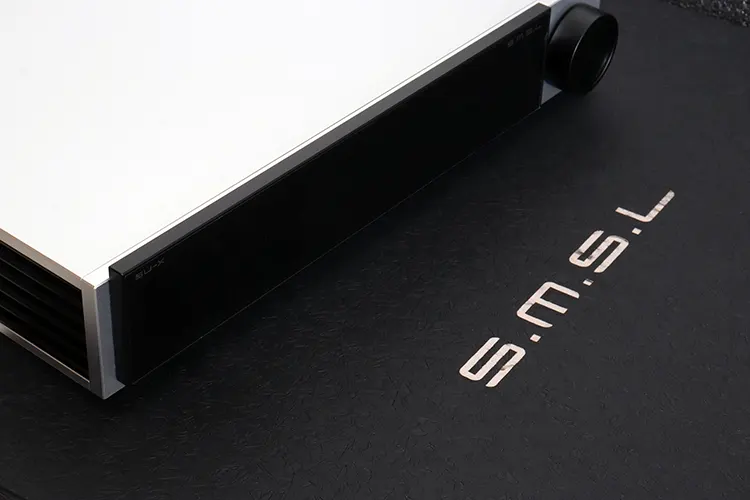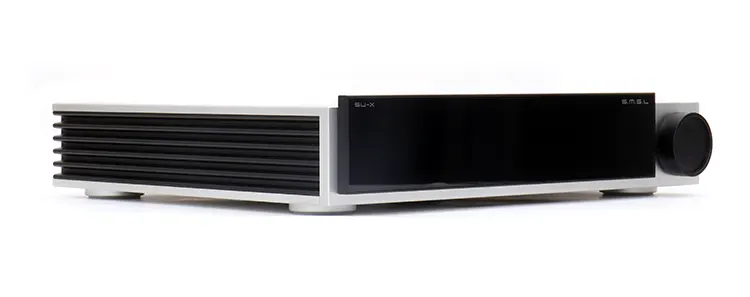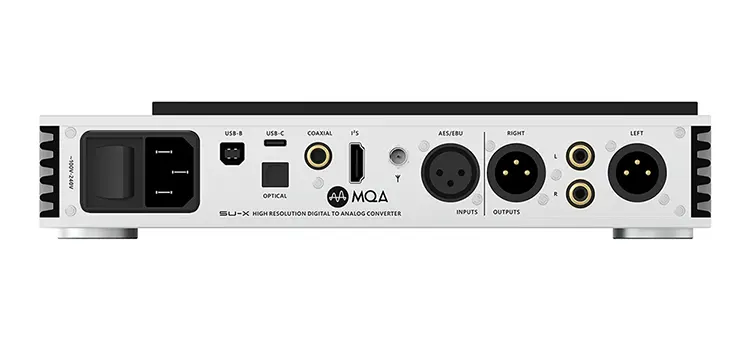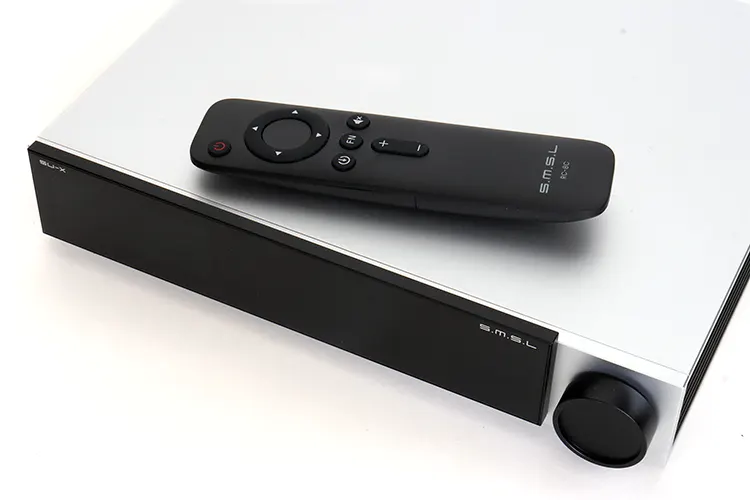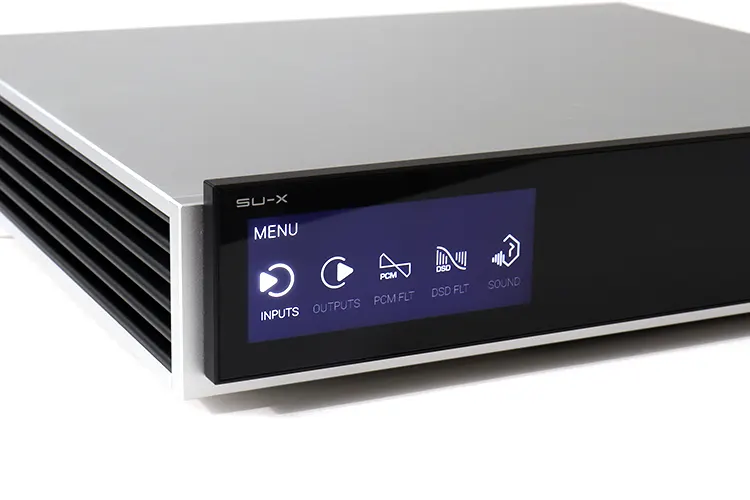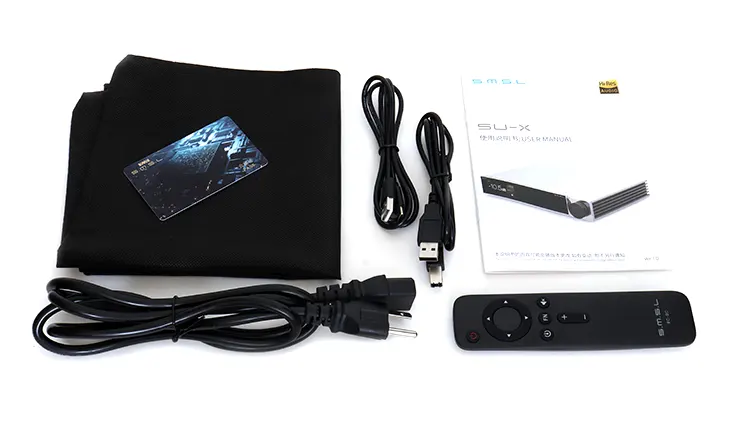Today, Louis reviews the SMSL SU-X, which is a new dual ES9039MS PRO desktop balanced DAC capable of up to PCM 32BIT/768kHZ and DSD512 decoding. It is priced at $999 SRP and is currently discounted to $899.10.
Disclaimer: This sample was sent to me in exchange for my honest opinion. Headfonics is an independent website with no affiliate links or partnerships. I thank Shenzhen Audio and SMSL for their support.
Click here to learn more about SMSL products that we have previously featured on Headfonics.
Note, that this article follows our current scoring guidelines which you can find in more detail here.
I’m back with another DAC review. SMSL recently renewed its desktop DAC lineup with the release of the SU-X, which is an updated and possible upgrade to its older SU-10 standalone DAC.
The SU-10 itself was praised by Aldous for its balanced sonic characteristics but it did not seem to be the best at detail retrieval. The new SU-X desktop DAC addresses that issue by updating some of the internal components to improve on that aspect.
The SMSL SU-X seems to be a very good DAC for measurement benchmarks as far as specifications are concerned and it certainly beats the SU-10 on paper.
Tech Highlights
SMSL went with new tech on the SU-X but they also used some old tech as well since it does employ a stack of opamps, 21 in total. So this device seems to blend old tech with new.
SMSL used the recently released ES9039MS PRO chipset in a dual configuration inside the SU-X for decoding. These are line-drive flagship chips from ESS Technologies configured to create an eight-channel circuit design to ensure DAC conversion stability.
The dual chipset sits within a true dual-channel design that is fed by two large toroidal coils and several low-noise-regulated power supply stages.
I can also see some very large Muse capacitors. It seems SMSL wasn’t playing around designing the power stage on this unit. There are even separate power sections for the digital and the analog stages.
To further improve upon this unit, SMSL went out and developed their own proprietary multi-frequency CK-03 Jitter processing circuit stage to manage the timing and keep Jitter at zilch.
The USB input stage uses the XMOS XU-316 true 32-bit USB solution which seems to be a common solution nowadays but a successful one since it can easily handle high bit rates from a USB 2.0 port.
Decoding
The SMSL SU-X handles most modern-day digital formats with no issues and does so in a smooth manner. It’s capable of PCM playback at up to 32BIT/768kHz and up to DSD512 natively.
It seems capable of handling multi-track tasks and multi-layer recordings easily, an end product of the 8-channel DAC setup. This DAC is rock solid and never presented any breakup or clipping during heavy use.
The DAC section is capable of playing back MQA and MQA CD-certified files at the hardware level. But you can’t decode this later type of file using the USB input and must use the Optical, Coax, or the AES port.
Bluetooth
The SMSL SU-X doesn’t have the latest and greatest Bluetooth radio but it does offer a Qualcomm 5.1 solution for receiving a signal from other devices and is captured by a rear-mounted SMA type antenna.
The SU-X supports an ample amount of codecs but don’t expect to run aptX Lossless if you do happen to own one of the selected few mobile devices that support that codec.
Amongst the codecs that are supported are LDAC, aptX HD, aptX, SBC, and AAC. The LDAC is capable of running 990, 660, or 330kbps rates depending on the transmitting source’s capabilities. This also adds a layer of stability to LDAC receiving.
I would consider the overall sound quality via BT LDAC to be sonically equal to some models employing similar tech.
For example, their L70 DAC, the Topping D90 III Sabre, and some of the iFi Audio DACs equipped with Bluetooth receiving capabilities like the One Signature DAC or even the original NEO.
Design
The SMSL SU-X overall design is a robust one made from a thick sheet of aluminum and a thick sheet of tempered glass up front. Large metal fins occupy the side panels and the overall package is a hefty 5.9 pounds or 2.7 kilograms, however, it does seem heavier to the senses.
SMSL only offers the SU-X in one color scheme for now which is black with grey being the more dominant color. The cabinet body is grey while the multifunction volume knob, the side panels, and the tempered glass are all finished in black.
It’s a handsome cabinet with an industrial sleek design and the only aspect I would change would be to add some kind of ventilation since the unit does get warm at times.
One advice I can give is that although this unit is stackable with its sibling SH-X amplifier, for example, I would recommend a separate shelf installation instead.
One positive note is that the thickness of the aluminum is such that it naturally makes this cabinet impervious to stray radio frequency signals. You can place your mobile device directly on top of this unit for example and you will hear nothing but silence.
I/O
The SMSL SU-X has an ample amount of inputs and outputs that are identical to the SU-10 so you neither gain nor lose connectivity on this new model.
Let’s start by mentioning the two outputs which are a set of RCA jacks alongside a set of 3-pin XLR connectors. Both inputs are selectable on the front panel display and they are fixed at 2.5v and 5v on output voltage.
The input section has more to offer. Side by side with the 3-pin XLR outs sits a 3-pin AES/EBU connection. The rear panel also includes an optical, a coaxial, and an IIS port.
The rear panel also sports dual USB ports, one is a B-type full-sized port and the other is a female USB-C port. The good thing about this is that both inputs can be used separately and are selectable from the front panel.
That works out well for people who plan to use this unit with a desktop PC setup but occasionally want to tap into their mobile phone and those who prefer wired over Bluetooth.
Controls
The front panel sports a single multifunction volume knob that is indented and although smooth in operation, there is a bit of wiggle on that shaft. I’d say it’s a slight flex but it’s not too bad.
The knob itself is all black and has a smooth finish, has no knurling, or a position indicator, and is not motorized either.
But before I forget to say, the volume level can be fixed or variable, selectable within the system menu, making the SU-X a good candidate for preamp use.
The front panel might be simple looking but behind that volume knob lies many complex features that are accessible on the fly. I would have used a nicer knob, however, especially on a unit of this tier. It does look good, however.
The rear panel is where the rocker switch is for the main power next to the heavy-duty 3-prong AC socket. The SU-X can be put into standby mode with a press-and-hold action on the volume knob. A momentary press wakes up the unit.
Remote control
The SMSL SU-X comes with an RC-8C remote control that uses two AAA batteries which I prefer over a 2032 or 2025 type of cells because AAA cells last longer and are easier to obtain.
The remote has everything you need to operate the unit starting with a power button as long as the unit is on standby mode.
The control also has a volume control rocker, a mute button, an input selector, and a function button that gets you into the system menu. A four-direction round control pad gets you to where you want to go within the system menu.
I was able to get at least 25 feet away with the remote control so it’s an acceptable remote for armchair and living room use. It works with an IR signal and the sensor is visible and is placed behind the front glass and to the right side of the screen.
System Menu
The system menu is displayed on an IPS display behind tempered glass which is intuitive once you get used to it. The main features side-scroll but the features within the main features are on an up and down scroll action to select them.
The SMSL SU-X menu is extensive and full of features. It starts by giving the user separate and selectable input and output menus followed by three separate sound tailoring options.
The first option lets you choose between eight separate PCM filters and the second option lets you choose between DSD filters.
The third option is called Sound and it lets you choose between four different modes, standard, rich, tube, and crystal. Each one of these settings has four choices within except for the standard selection.
Next up, you can choose between preamp fixed and variable output, followed by a function key switch, a DPLL adjustment feature, an IIS normal or reverse feature, a dimmer and a separate brightness adjustment feature and then there’s a reset feature.
Packaging and Accessories
The SMSL SU-X unit comes inside a foam mold within a large box that is made of thick cardboard pulp. It’s all Black with the SMSL letters upfront in Silver. Black and Silver or grey always work for me, plus it matches the unit’s color scheme.
The accessories list and what you get inside the box are the following. A 3-prong 5-foot power cord, a 3-foot USB A to USB C cable, a 3-foot USB A to USB B cable, an owner’s manual, the SMA terminated Bluetooth antenna, and the remote control. By the way, no AAA batteries are included.
There are two oddball inclusions. One is an SMSL VMV pass card with a scan code that I scan and nothing happens and then there’s a bag to put the SU-X into for storage purposes. I ask, why do you want to put Baby away?
Click on page 2 below for my sound impressions and selected comparisons.

